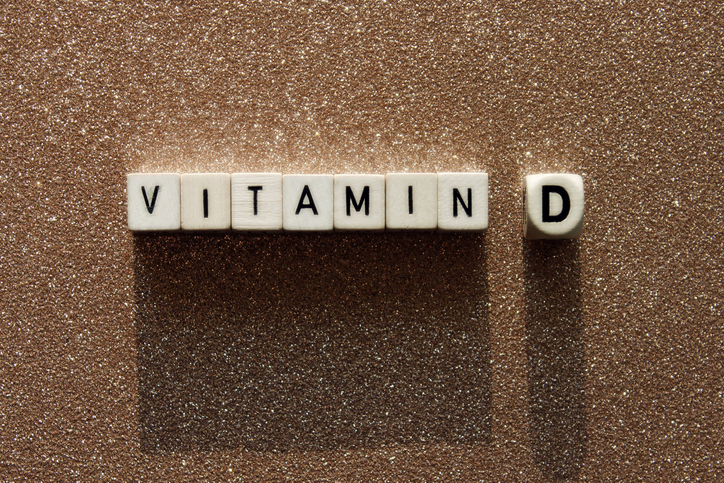Vitamin D’s Potential Powers To Help Fight Coronavirus and All Respiratory Infections

Everyone is fearful about the coronavirus and rightfully so. It is a respiratory disease that can spread from person to person. However, respiratory disease in general has been a threat to global health for quite some time.
“Acute respiratory infections are a major cause of global morbidity and mortality,” according to one source.
There are two basic categories of acute respiratory infections (ARIs): upper respiratory tract infections (URIs) and lower respiratory tract infections (LRIs).
“The upper respiratory tract consists of the airways from the nostrils to the vocal cords in the larynx, including the paranasal sinuses and the middle ear,” according to the National Institutes of Health (NIH).
“The lower respiratory tract covers the continuation of the airways from the trachea and bronchi to the bronchioles and the alveoli.”

Upper respiratory tract infections are often just called the common cold.
“An upper respiratory infection (URI), also known as the common cold, is one of the most common illnesses, leading to more health care provider visits and absences from school and work than any other illness every year. Hundreds of different types of viruses cause inflammation of the membranes in the lining of the nose and throat. Greater than 50% of URI are caused by viruses from the rhinovirus family,” according to one source.
To break this down a bit further, according to the Centers for Disease Control and Prevention (CDC):
“Many different respiratory viruses can cause the common cold, but rhinoviruses are the most common. Rhinoviruses can also trigger asthma attacks and have been linked to sinus and ear infections. Other viruses that can cause colds include respiratory syncytial virus, human parainfluenza viruses, adenovirus, human coronaviruses, and human metapneumovirus.”
(The flu, which is caused by the influenza virus, is considered by some to be a systemic illness (meaning it can affect the entire body). If you have the flu you may show signs of both an upper respiratory tract infection and a lower respiratory tract infection).
Some examples of lower respiratory tract infections are pneumonia and bronchitis. There is also chronic respiratory diseases (CRDs) such as asthma and chronic obstructive pulmonary disease (COPD). With the coronavirus disease 2019 (COVID-19), the initial symptoms appear to be of the upper respiratory tract. A person with this virus may then experience flu-like symptoms, and in severe cases the virus may lead to pneumonia (a lower respiratory tract illness).
So as we can see, respiratory illness is complicated and falls under a very wide umbrella. There are many different types of viruses and bacteria that can cause respiratory illness, so one of the main questions people often have is: how can I help my immune system fight these pathogens off?
I recently shared a blog about the immune system and 10 ways to be proactive about keeping your immune system in top shape.
Interestingly, as we navigate this global coronavirus pandemic, people are scrambling for disinfectants and toilet paper. But what we may also want to be grabbing are vitamin D supplements and vitamin D-fortified foods.
Also known as the “sunshine vitamin” (because we get it from the sun’s ultraviolet rays), vitamin D is a critical nutrient for bone and muscle health. There are not many foods that naturally contain vitamin D. There are some products in the grocery store, like orange juice, which are fortified with vitamin D, but you mainly have to depend on the sun in order to get an adequate, natural intake of vitamin D.
Many people may be vitamin D deficient, because they live in a climate with limited sunlight year-round or spend a lot of time indoors. According to one source, vitamin D deficiency affects almost 50% of the population worldwide and an estimated one billion people worldwide.
Turns out that vitamin D may also play a role in protecting us from viruses. A 2017 study found evidence which suggested that vitamin D supplements may provide protection against acute respiratory infections (including colds and flu).
“Vitamin D -- the 'sunshine vitamin' -- is thought to protect against respiratory infections by boosting levels of antimicrobial peptides -- natural antibiotic-like substances -- in the lungs,” according to one report discussing the study.
In addition to this, there is evidence that vitamin D supplementation may reduce the occurrence of asthma attacks (which are often triggered by viruses).
Vitamin D is a nutrient that also appears to have powerful immune-boosting properties. The immune system support this vitamin delivers is believed to be the reason why it may help asthma sufferers. If people with asthma can prevent infections and viruses and inflammation in the bronchial tubes, then they can better manage their condition.
So as you battle the coronavirus crisis, it might not be a bad idea to make sure you are getting an adequate intake of vitamin D (especially if you suffer from asthma or any other chronic respiratory disease).
The study mentioned earlier looked at raw data from nearly 11,000 participants in 25 clinical trials in 14 different countries, including the UK, USA, Japan, India, Afghanistan, Belgium, Italy, Australia and Canada.
The researchers found that in many cases, vitamin D supplementation provided protective effects against respiratory infections. And they found that the benefits were more apparent in people who were already vitamin D deficient. They also found supplementation to be more beneficial when it was administered daily or weekly as opposed to in “more widely spaced doses.”
“The study provides the most robust evidence yet that vitamin D has benefits beyond bone and muscle health, and could have major implications for public health policy, including the fortification of foods with vitamin D to tackle high levels of deficiency in the UK,” according to the study report.
More specifically, the results showed that daily or weekly supplementation with vitamin D halved the risk of acute respiratory infection in people who had the lowest baseline levels of vitamin D. And in people with higher baseline levels of vitamin D, benefits were seen but only by a 10 percent reduction risk.
The main point is: “Overall, the reduction in risk of acute respiratory infection induced by vitamin D was on a par with the protective effect of injectable 'flu vaccine against 'flu-like illnesses.”
That is huge! I think this is something healthcare professionals need to keep in mind as we battle coronavirus and other respiratory illnesses.
Furthermore, according to one report, “In one study of 107 older patients, some patients took high doses of vitamin D while others were given standard doses. After a year, the researchers found that people in the high-dose group had 40 percent fewer respiratory infections over the course of the year compared to those on the standard dose.”
So people who are older and more vulnerable if they get the coronavirus might really want to consider taking a vitamin D supplement per the guidance of a competent healthcare professional.
I do want to be clear in saying that it is very important to supplement properly. This article discusses how some “wellness gurus” are encouraging people to take potentially toxic levels of vitamins in order to “beat the coronavirus.” This practice is called “vitamin megadosing,” and the consequences could be very dangerous.
Taking too much vitamin D may cause a buildup of calcium in the blood (hypercalcemia). This condition can cause nausea, weakness, excessive urination and even lead to bone pain and kidney problems.
“If you're taking a vitamin D supplement, you probably don't need more than 600 to 800 IU per day, which is adequate for most people. Some people may need a higher dose, however, including those with a bone health disorder and those with a condition that interferes with the absorption of vitamin D or calcium, says Dr. Manson. Unless your doctor recommends it, avoid taking more than 4,000 IU per day, which is considered the safe upper limit,” according to Harvard Health.
Although there are very few foods that naturally contain vitamin D, it is best to get your vitamin D from sunlight and food if possible. Foods that contain vitamin D include fortified milk and orange juice. Sun-dried mushrooms and some fatty fish are also good sources of vitamin D.
I know most of us are all hunkered down in our homes as we 'wait out' this coronavirus pandemic, but try to get outside (while, of course, practicing social distancing) and get some sun. Your body needs the sunlight and it may even improve your mood as we endure these challenging times.
Stay healthy and safe and enjoy your healthy life!
The pH professional health care team includes recognized experts from a variety of health care and related disciplines, including physicians, attorneys, nutritionists, nurses and certified fitness instructors. This team also includes the members of the pH Medical Advisory Board, which constantly monitors all pH programs, products and services. To learn more about the pH Medical Advisory Board, click here.







